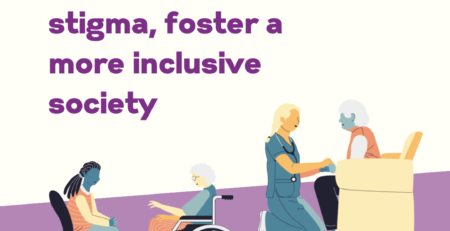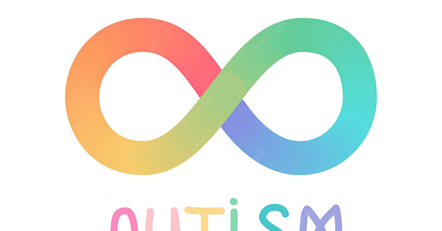Understanding the Grief of Lost Dreams
Losing a dream often brings about an intense emotional response akin to grief. Just like grieving the loss of a loved one, grieving for a dream goes through phases of denial, anger, bargaining, despair, and finally acceptance. While frequently linked to other forms of mourning, these phases also apply when dealing with the loss of a cherished dream.
The sense of grief, understandably, stems from the deep emotional investment in the dream—be it a career you spent years developing, a business you devoted your life to, pursuing sporting excellence in your field with the hope of successfully attaining national/international levels, or a relationship you envisioned lasting a lifetime. The loss represents not just the failure of a goal but also the collapse of a significant part of your identity and future. Acknowledging these feelings as valid and understanding that they are natural, is part of the healing process.
Recognising Your Loss
Realising that a dream has been lost is more than just losing an end goal or ambition; it also entails losing a significant part of our identity and a vision for the future that we deeply cherished. This may result in a grief experience that is comparable to that of losing a loved one. Even though many people make an effort to minimise their feelings, doing so can make them worse and make recovery more difficult. Recognising that emotions such as grief, rage, confusion, or emptiness are natural reactions to this loss is necessary. Sometimes life deals us a bad hand or throws us unexpected roadblocks.
Getting Used to a New Reality
After the loss of a dream, there is a period of adjusting to a new reality, which may involve feelings of melancholy and depression. Sometimes life gives unanticipated obstacles that we must adapt to. At this moment, it is necessary to consider one’s identity and values independently of the dream. It might be challenging since you have to reassess your priorities and identity in the absence of the dream that once defined you. It can be helpful to reflect on the various ways in which the dream remains achievable as well as the lessons you picked up about yourself over the course of it.
Adapting doesn’t mean giving up on your aspirations entirely; it’s about finding new ways to fulfil the underlying desires that the dream represents. For instance, if you’ve lost a career opportunity, consider what it was about that path that appealed to you. Was it the creativity, the sense of achievement, or the impact on others? These elements can often be found in other pursuits, even if they look different from what you originally envisioned. Once you’ve found some resolution in your mind’s view of your new pursuits / aspirations, the next step on your journey can commence. Own the responsibility to take steps, however small, toward realising your ‘new’ current image regarding this new direction.
Creating New Goals and Dreams
1.Transition from Mourning to Action
Moving from grieving to taking action involves creating realistic goals to regain a sense of purpose and progress. Starting with small, achievable objectives can boost confidence and prevent further disappointment. These new goals can ultimately provide direction and lead to a renewed sense of fulfilment.
2.Reinvest in Your Capacities
Focusing on rediscovering personal strengths and interests that may have been overlooked in the past can broaden one’s sense of self-worth. Exploring new hobbies or passions can offer unexpected fulfilment and avenues for personal growth if previous career ambitions did not pan out.
3.Networking and Community Engagement
Connecting with peers and joining groups that share similar interests often provides support and inspires new dreams. Engaging with others provides social reinforcement and helps redefine your sense of community and belonging, which might have been disrupted by the loss of the dream. Building new relationships and networks can also spark inspiration and open up new possibilities.
Strategies for Emotional Resilience
1.Practice Self-Compassion and Mindfulness
It’s very easy to be overly critical of oneself after a loss. By practising mindfulness, you can regulate your thoughts that persist of what could have been and maintain your sense of awareness of the present moment. Treating oneself with the same consideration and understanding that you would extend to a friend experiencing comparable hardships is an essential aspect of self-compassion. This approach can assist you in overcoming sadness with more ease and resiliency.
2.Seek Professional Guidance
When grief feels overwhelming or persistent, seeking the help of a mental health professional can be invaluable. Therapists, especially those specialising in grief, can offer structured guidance to help you process complex emotions and work through grief toward acceptance and new goal-setting. Professional support provides a safe space to explore your feelings and develop strategies for healing.
3.Recognise and Celebrate Progress
While passing through the stages of grieving and beginning to set new goals, recognise and celebrate any progress you make. Rewarding yourself for even tiny accomplishments, such as finishing a short project or feeling a little more optimistic, can help you feel good and stay motivated. It’s critical to understand that it’s not always simple to move forward from lamenting a dream broken to setting new goals.
Cultivating Patience and Perseverance
This process will require patience and tenacity because setbacks are a fundamental component of the journey and can offer valuable learning opportunities. You can move forward with resilience if you have a persistent and patient mindset. Even though it can be difficult to look forward during grieving, cultivating hope and keeping an optimistic mindset are integral for long-term wellbeing.
It can be hard to look forward during grieving, yet long-term wellbeing depends on cultivating hope and keeping a positive view. Take part in uplifting practices and activities, including keeping a gratitude journal or arranging exciting plans for the future. Keeping a positive mindset will help you embrace new opportunities and support in your journey through emotional healing.
Accepting New Beginnings with Support and Hope
Dealing with the pain of a dream lost is a challenging yet essential step to recovery and self-awareness. You may put an end to your feelings and create new opportunities by accepting your feelings, setting goals, and employing strategies to build emotional resilience. It’s important that you bear in mind that you don’t have to walk this path alone.
Conclusion
While you might not become the rock star you once dreamed of being, resilience, persistence, and a willingness to experiment can eventually guide you to a place where you feel you’re truly doing what you were meant to do. I try to follow the advice not to ‘spend your life waiting for a moment that just won’t come,’ and instead have been striving to listen to my heart and become myself.













